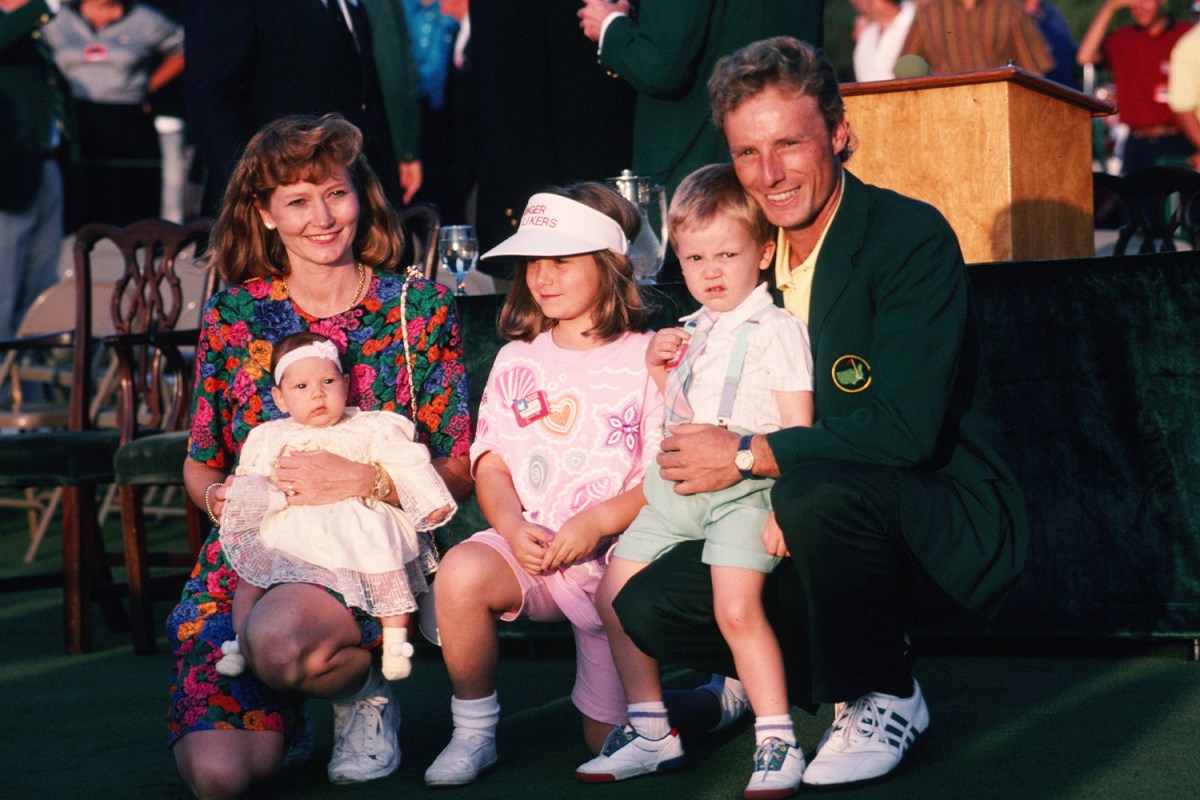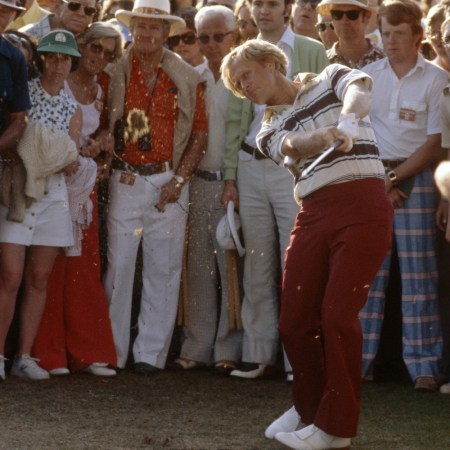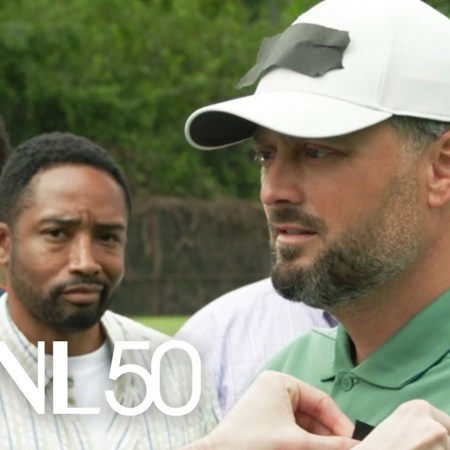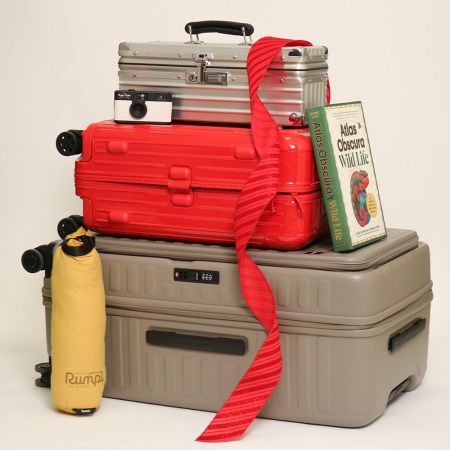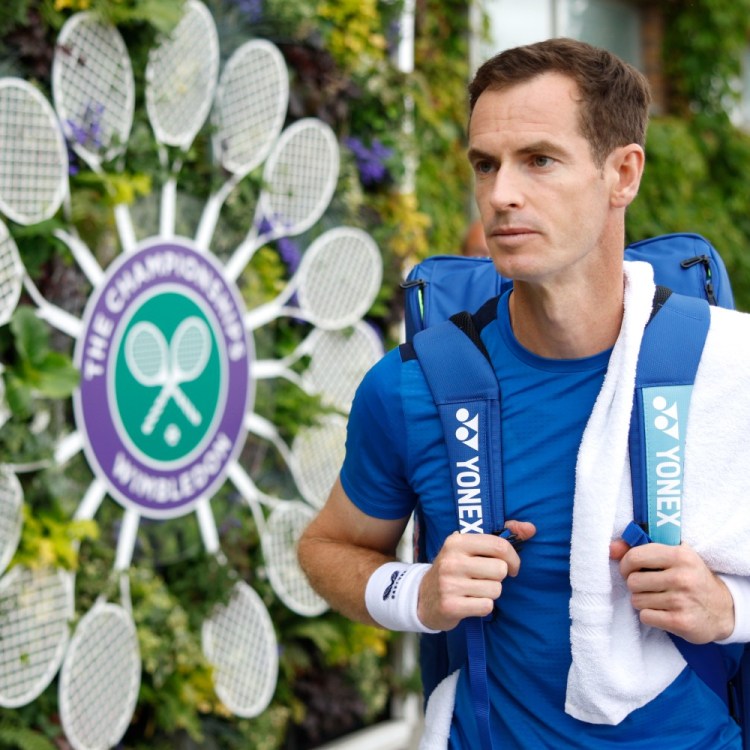Bernhard Langer’s Hall of Fame career speaks for itself. He owns a pair of green jackets thanks to his two Masters wins. He’s taken home a trophy a whopping 117 times as a professional, including 41 times on PGA Tour of Champions, where he’s chasing Hale Irwin’s record for wins (he’s currently four short). But he’s also a father to four kids, Jackie, Stefan, Christina and Jason. This week, he and Jason are defending their title at the PNC Championship at the Ritz Carlton Golf Club in Orlando, an event the pair has won twice. (Langer, who has played the event with all of his children, also won the event twice with his son Stefan.)
Golf is, of course, a game played outdoors and naturally socially distanced. So thanks to COVID-19, it’s booming; rounds are up by more than 50 million year over year — an incredible number considering how many courses were shuttered for a few months early in the pandemic. It’s also a great way to spend time bonding with your family, outside, away from the electronic world. So we caught up with Langer ahead of the title defense he’ll mount with his son to get his thoughts on how to introduce golf to your own children.
InsideHook: You have four children, and I imagine all of them started joining you on the course at some point. At what age do you think it’s time to put a club in their hands?
Bernhard Langer: I think it’s important to make sure that your children come to you with a desire to try golf. Just because as a parent we might love the sport, does not mean that you should impose your passion on your kids. They need to find their own path and passion for the game. I think you can encourage your children to take an interest, by asking them to join you at the range or on a round to have fun watching you play, or watching a big tournament on TV together. And then hopefully they will come to you to ask if they can learn and share the experience. More important than anything though, it should be fun for everyone!
Obviously, you want to start them at the range and/or on the putting green, right? How can you keep them interested in practicing? How do you make practice fun? Any practice game suggestions?
Of course the range is the best place to try lots of clubs and hone a swing, but if you have the space at home, I think it’s also fun to practice chipping and swinging in the garden. The plastic practice balls with holes can actually be really useful to show if a learner is making a true connection. And if you can make it a fun competition at the range or your garden to win a prize or a treat, then kids will always be engaged. These days, of course, there are also indoor simulators, which can be useful if you live in the city. Finally, I think video can be a big help — filming your child’s swing and watching it back together. Slow-mo is very useful. You can even then try looking at a pro’s swing. I’ll let you decide which player you pick!
What skills, if any, are required before their first round or first few holes?
Firstly, I think it’s important to start kids out on a dedicated academy course or pitch ‘n putt. Stepping up to a 9 or 18 hole adult course may only set you back at first. Then I think one of the most important skills to focus on is more mental than sporting — ball skills will come with time, but I would work with your children to make sure they stay calm and focused. This will help overcome disappointment, which is always guaranteed as a learner on the course! Golf is a lifelong journey of ups and downs, so giving them the tools to be patient, calm and concentrated will set them up well as a child and an adult.
Golf can be a little bit dangerous and accidents can happen, what can you do to minimize the risks and keep kids safer from errant shots on the course?
I think it’s important to talk to your children about golf etiquette in general before bringing them into a course environment. Not just safety aspects, such as keeping a safe distance from a swinging club, standing behind someone striking a ball, shouting ‘fore’ and staying alert. But also talking to them about respecting other players in your group and around the course, when it’s your turn to hit, when to let people through, etc. Golf not only has a lot of rules, but there are a lot of norms we take for granted that need to be laid out to children early so they are safe and respectful on the course.
Some kids can get a little hard on themselves, they expect to be good at everything right away. How do you help them build confidence and understand their goals on the course might be a little different from their parents’?
I think many adults are also hard on themselves as they expect to be able to boom the ball like DJ or Bryson! The key to golf has always been to play your own game and not worry about your opponent – just be the best you can be. And so it’s definitely important to talk to you kids about setting goals on the course that are realistic and tailored to where they are at. If you set achievable goals about how far they can hit it off the tee or working on their short game, then they will avoid disappointment and naturally build their confidence. They need to be only focused on their game and not compare themselves to others. And as ever with parenting, lots of positive encouragement always helps!
Of course, not every child has a successful professional golfer as a father, and I imagine you taught your children quite a bit about the game. But for amateur parents, when is the right time to find an instructor? And what would you look for in a teacher?
Once your children have engaged with the game enough to practice swinging on the course or in the garden, and perhaps tried some short par-3 rounds, then an instructor is a natural next step. The most important aspect for success with a teacher is that there is a connection, and that the teacher’s demeanor, style and manner bring out the best in your son or daughter – so you might not find the right formula straight away. If you are a member of a club, I would ask around about members’ experience with their children. And talk to the pro shop about your child’s personality and characteristics to see if they can suggest the right instructor to build a strong relationship.
Most young children — and even many adults — don’t have a well-developed attention span. Golf can be slow and long and you have to know your child — they may not be able to handle a full round, and when they are done, it’s time to go. But are there ways you’ve learned to help them maintain focus or deal with waiting?
This is a tough one. It really depends on your kids. But I think flexibility is key. Maybe let them sit out a hole if their energy and concentration is waning. Or drop a ball around the green just to practice chipping and don’t worry about the tee shots for a few holes. And just like the pros, food and drinks can be key — a good snack can save a round!
Why is golf a good game for children and families to take up?
It’s real quality time together out of the house, away from modern distractions. There’s so much opportunity to talk, laugh and connect in between shots. And golf offers a level playing field, no matter your age, sex or ability, so it can involve the whole family. Golf courses are often so beautiful, so spending time surrounded by nature with your loved ones can be magical. Plus it helps you all stay fit and healthy, which benefits everyone.
Are there any other tips or wisdom you’ve learned along the way teaching and playing golf with your children?
Keep injecting fun into the golf experience. Try to involve their friends and make sure they’re smiling when they’re at the golf course.
You have won the PNC twice with Stefan and twice with Jason. What does it feel like to win a golf tournament with your children? And how does that resonate with your other wins? Are your other kids a little jealous?
It makes me immensely proud and happy just to spend time on the course with all of my kids. I have played the tournament with all of my four kids. I regularly play with my sons Stefan and Jason, as well as with my daughters, Jackie and Christina, and to be honest I treasure the simple pleasure of being with them all and sharing memories. So winning a tournament is just a lovely bonus if it happens. It’s tough to compare with winning on Tour or winning The Masters — those are individual efforts, whereas for the PNC I am part of a team with family. We are a very open, tight-knit family unit and there is no jealously at all. The opposite in fact; my kids not only strongly support each other but really celebrate each other’s successes and achievements. It’s just great to see this
Whether you’re looking to get into shape, or just get out of a funk, The Charge has got you covered. Sign up for our new wellness newsletter today.
